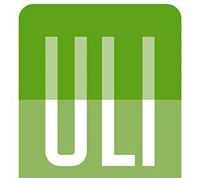House Energy Committee Needs To Take The Energy Efficiency Path Back To Bi-Partisanship
Alliance to Save Energy Opposes H.R. 8 – The North American Energy Security and Infrastructure Act
WASHINGTON, D.C. – October 14, 2015 – (RealEstateRama) — The Alliance to Save Energy opposes House passage of H.R. 8, the North American Energy Security and Infrastructure Act, as reported today by the House Energy and Commerce Committee on a largely partisan vote of 32 – 20. While there are provisions included in the bill that would advance energy efficiency to the benefit of consumers and businesses across the country, these represent small gains when considered alongside other provisions of the package that would significantly impede the country’s ability to continue to advance energy efficiency in the built environment – the largest energy consuming sector of our economy.
Building energy codes have been a key tool for improving the energy efficiency of homes and commercial buildings across the country. The building energy codes provisions included in H.R. 8 would damage the important and effective process now in place for the development and adoption of building energy codes in the U.S., and in so doing, could cost American consumers and businesses over $20 billion in wasteful energy use. Specifically, H.R. 8 would impede advancements in energy efficiency in three significant ways:
First, the bill would eviscerate the critical role of the U.S. Department of Energy in the code development process;
Second, the bill would mandate the use of a flawed and inappropriate cost-effectiveness metric known as “simple payback”; and,
Third, the bill would weaken the certification process for state and local adoption of building energy codes.
“We regret that the House Energy and Commerce Committee abandoned its efforts to craft a bi-partisan energy package and elected to report a bill that reduces – if not extinguishes – the prospects for enactment of comprehensive energy legislation in 2015,” said Alliance to Save Energy president Kateri Callahan. She added, “The best path forward for Chairman Upton to achieve his stated goal of getting a bill to the President’s desk is to move forward immediately to favorably report H.R. 2177, the Energy Independence and Industrial Competitiveness Act, introduced by Alliance Honorary Board members David McKinley (R-W.Va.) and Peter Welch (D-Vt.), which has the support of hundreds of organizations and companies across the U.S. and strong bi-partisan support in the Committee.”
H.R. 2177 includes, among other important energy efficiency provisions, improvements to the process for developing and implementing building energy codes that the American Council for an Energy Efficient Economy estimates will save consumers and businesses over $60 billion in avoided energy costs.
For more information, please refer to our fact sheet summarizing the final revisions to the bill ahead of the markup, as well as a fact sheet on the entire comprehensive energy bill.
MEDIA CONTACTS
David Lanham
















